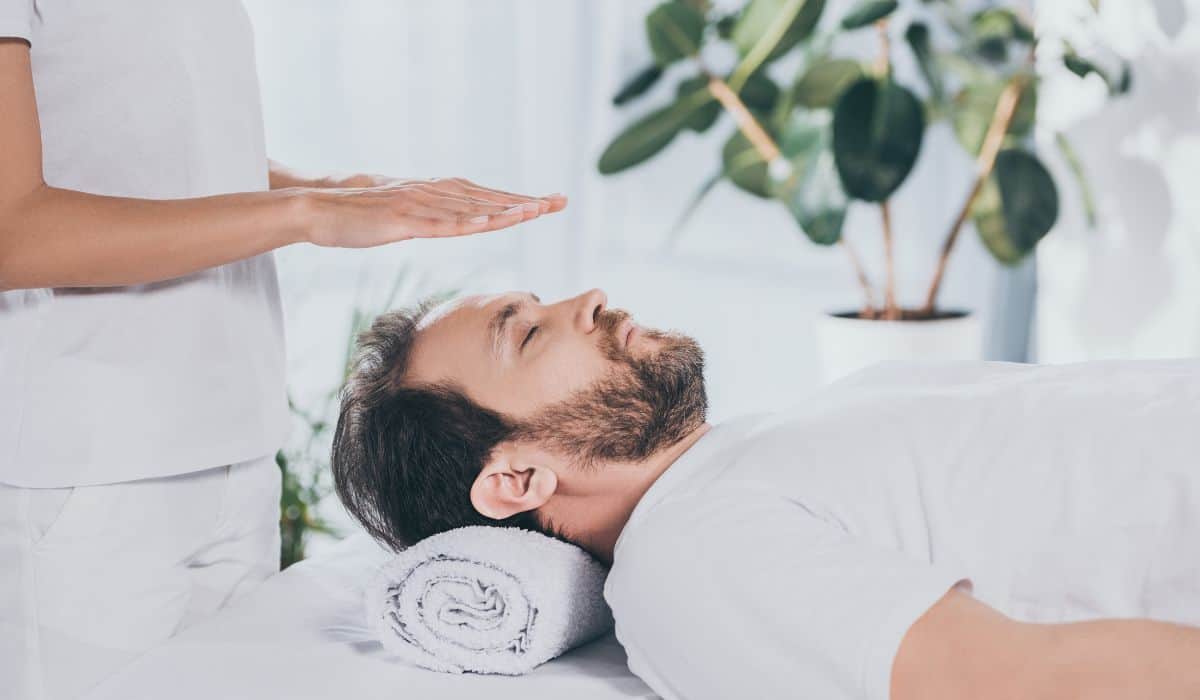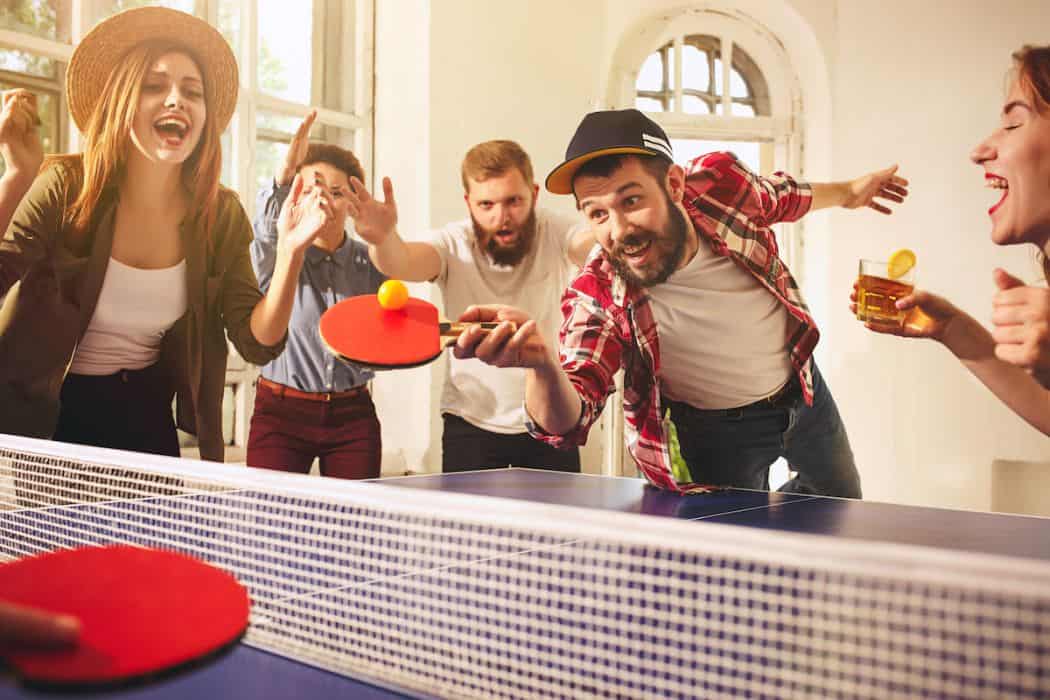Are you feeling stressed, tired, or fatigued? Have you been depriving yourself of some much-needed self-care? Do you need to boost your life force energy?
Then Reiki could be the hobby for you!
Reiki is a hobby that will not only help you enjoy your free time but also help your overall body, mind and soul relax improve.
Is Reiki the hobby for you? Let’s find out
What is Reiki?
Reiki is an alternative form of holistic therapy often referred to as energy healing or palm healing.
The practice is based on the principle that you can restore physical and emotional wellbeing and promote inner harmony through the flow of energy. It is a safe, easy, and natural technique that anyone can try at home and perform as a hobby.
Energy healing has been around for centuries, but Reiki practice, in particular, emerged in Japan during the late 1800s. Although the practice is spiritual by nature, it is not tied to a religion and there is nothing you have to believe in order to use it.
The word originates from “Rei” meaning wisdom from God or a higher power and “Ki” meaning life force energy. It literally translates to spiritually guided life force energy.
It is believed that when the flow of Ki is blocked or disrupted, it adversely affects the body. If your “life force energy” is low, you are more likely to get sick or feel stressed. If your “life force energy” is high, you are more likely to feel healthy and happy.
Reiki also responds to a person’s thoughts and feelings. Positive thoughts help the life force energy to flow more freely through your body and contribute to vitality.
Negative thoughts, however, contribute to a poor flow of life force energy which can be a cause of decreased health. The technique promotes a spiritual balance by healing your spirit and helping clear your thoughts to help pursue self-improvement.
Why You Should Learn Reiki?
Reiki helps to restore the connection between your mind and body. It channels the universal energy, qi, which is the life force energy that flows through us all.
It is believed that Reiki promotes healing by cleansing your mind, body, and spirit of negative emotions that obstruct and disturb your inner peace.
It does not require the need for any equipment, and once you have been attuned by a Reiki master you are bestowed the skill for the rest of your life.
The Benefits of Reiki
Reiki is thought to have many beneficial effects. It can reduce symptoms of pain, anxiety, fatigue, or problems related to stress.
It is thought to cleanse toxins, lower blood pressure, improve your quality of sleep, help to better understand and manage your emotions, and support the body’s natural ability to heal itself.
Reiki is also believed to open your mind to new thoughts, helping you better appreciate the things you have, increase levels of curiosity, and boost creativity.
For these reasons, Reiki is considered by many as a secret art for inviting happiness into your life.
Reiki is fantastic when used as a complementary practice in conjunction with other therapeutic or medical techniques such as acupuncture, massage therapy, or even counseling as it can relieve side effects and promote recovery.
It has been known to help sufferers of depression by relieving physical symptoms and improving your mood. In addition, Reiki has been used as a form of relaxation before surgery and for pain relief post-op. It is also sometimes used to support women during pregnancy.
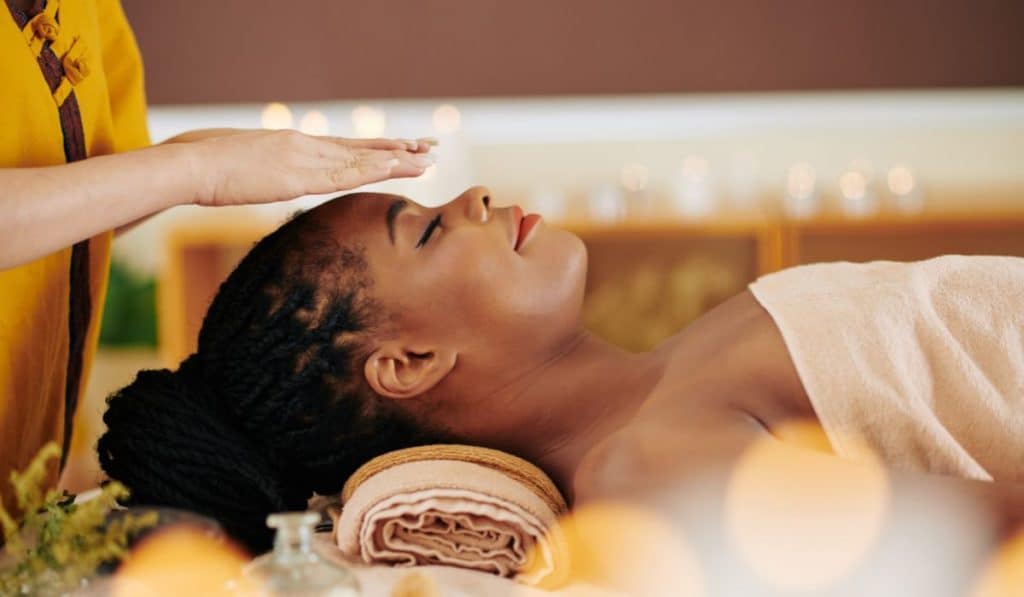
Using Reiki for Self-Care
Setting aside a small chunk of your day to self-care is extremely beneficial to your physical and mental wellbeing. It helps you to feel more fulfilled in your life as well as more confident and capable to face up to daily tasks and challenges.
When you begin to prioritize your own wellbeing, the results can be nothing short of remarkable.
For many people, self-care is often ignored or forgotten about. During periods of high stress in our lives, we are quick to dismiss the need to take time to move your body and rest your mind in order to recharge ourselves.
Self-care practices do more than to just make us feel good or relieve pain: A person who takes care of themselves can be of great service to others around them. Daily practice of Reiki is a wonderful way to reduce stress, restore balance, and reconnect with your inner-peace and wellness.
The practice of Reiki provides a wonderful opportunity to center yourself following moments of pressure, intensity, or high levels of emotion in your daily life.
It is also a fantastic hobby to learn for people who suffer from stress and anxiety.
When used for self-care purposes, Reiki can be useful to people from all backgrounds, including those who are healthy or face health challenges.
It is also valued by people with busy schedules seeking to relieve stress or improve the balance in their lives.
Reiki practice is also thought to be highly influential for people who have paid little attention to their own wellbeing over time.
Who is Reiki Best Suited to?
Reiki is accessible to everyone from all ages and backgrounds, including children and the elderly.
It is entirely non-invasive and considered to be a safe practice for anyone to use with no known side-effects, and it can be repeated as often as anyone feels they need to.
Learning Reiki can be of benefit to people who suffer chronic health conditions such as epilepsy, depression, diabetes, asthma, fatigue syndrome, heart disease, and cancer.
Reiki is a complementary practice but is not intended to replace doctors’ treatments for symptoms.
Families can learn Reiki to practice on one another to build stronger and deeper bonds as well as creating a culture of wellness and healthy habits.
If there is someone in your family who is ill and requires help to complement their treatment, one or more members of the family can learn Reiki to treat them as well as the person treating themselves.
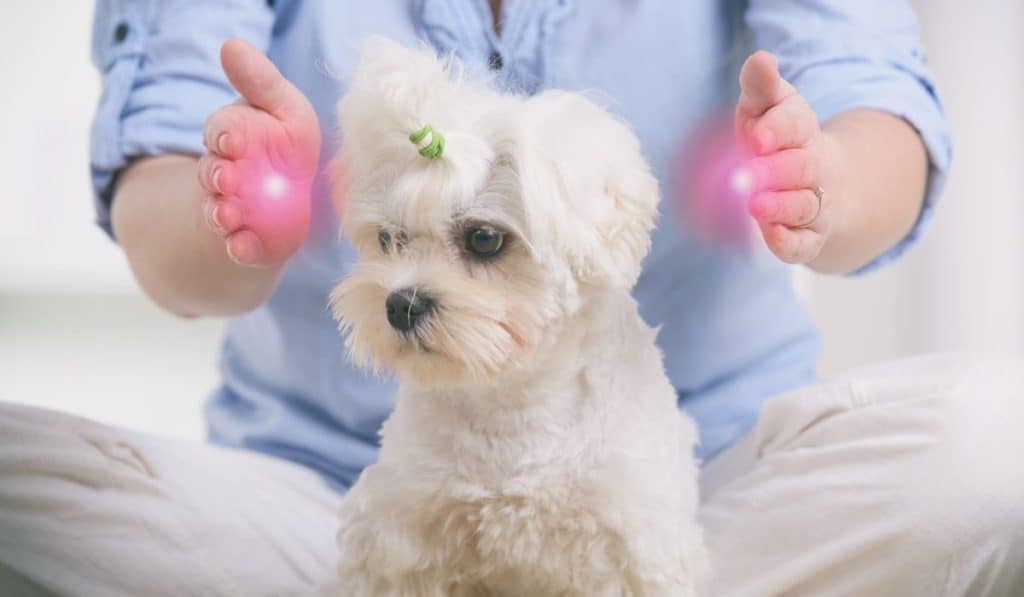
There is also anecdotal evidence that animals can benefit from Reiki in the same way experienced by humans. People who offer Reiki to their pets find that they are surprised by the curiosity and level of cooperation displayed by their pets!
How to Learn Reiki for Yourself
Reiki is a wonderfully simple technique to learn and administer. For anyone who is interested, it is easy to learn and practice Reiki as a self-care hobby.
One of the distinctive features of Reiki practice lies in its simplicity. You do not need to have specialist credentials in healthcare or bioenergy to receive training, and it can be taught in around ten hours’ worth of in-person training typically in the format of group classes.
In order to learn Reiki, you will participate in an attunement procedure with a Reiki master that teaches you to transmit life force energy that can be used to heal others.
Courses can be taken at levels 1, 2, and 3. Upon completion of level 3, you will be a Reiki Master. It is important between levels that you are able to practice and develop your skills to build up your experience.
You can perform reiki on people, plants, and animals. You can even perform reiki on yourself. You do not need a health board license to practice and study reiki.
Reiki practice involves a Reiki practitioner placing their palms on their patient to transfer life force energy. Although receiving Reiki from someone else is a wonderful experience, you should consider learning Reiki to perform the practice on yourself.
When you learn Reiki as a hobby, you will learn specific hand positions and special symbols used for healing. At an advanced level, you will be able to heal both yourself and others.
What does Reiki Training Consist of?
Reiki is not something that is taught in the typical sense of an explanation or demonstration. Rather, the ability is passed on from one person to another and is therefore learned through a lived experience.
Training consists of three levels of experiential practice. Each area builds on the other and entails a specific focus.
- The first level tends to focus on self-care and is typically taught over 8-12 hours. This class teaches students to perform Reiki on themselves as well as learning the correct hand placements.
The Reiki Master will often also provide a summary of the history of Reiki and its primary principles. The main focus will be initiating students to become empowered in channeling Reiki energy.
If Reiki is being taught to a nurse or healthcare professional looking to broaden the scope of their care, the class will also focus on the application of Reiki as a complementary practice in clinical settings. For the majority of people who are learning Reiki for self-care purposes, the first level of training is all that is required.
- The second level teaches students about distant healing. Hand-to-body contact is advanced into learning to heal through mental connection and without touch. This level of training enables people to enhance hands-on treatment as well as being able to heal patients where touch is not possible.
- The third level is for students training to be Reiki Masters. Historically, this was reserved for invitation only and extended only to those students who devoted their lives to the practice.
This level is typically done through an extended period of study between the Master and the Apprentice. Once you have completed level 3, you become a Reiki Master and can go on to teach other people Reiki.
How can I find a Reiki Practitioner?
Reiki can only be taught by a qualified Reiki Master. If you are unsure where to find one, a good place to start is by asking friends that practice Reiki who they studied with.
Another option is to ask practitioners from other local complementary therapies such as acupuncture, yoga, or massage. It is becoming more common to find Reiki practitioners setting up private healthcare practices.
You may even be able to find somewhere by looking in your community such as bulletin boards in local health stores or yoga studios. Since Reiki practice is used by many people as a complementary form of self-therapy, your local hospital may provide a list of community resources.
Is Your Reiki Master Credible?
Since Reiki is not a standardized practice, it is important that you inquire into your Reiki Master’s background. Any credible Reiki master will welcome an explanation to your inquiry.
Credible Reiki Masters typically have websites or brochures with details of their training and classes. If this information is not available, it may be worth asking them about their background and experience.
It is worth noting that Reiki has emerged as a cultural movement rather than through academic healthcare. For this reason, be wary that many different practice styles have emerged since there is no common standard of treatment and education.
Ideally, you are looking for someone who has lots of experience performing Reiki and has been taught over a period of time. What is also important is that your Reiki practitioner performs daily self-care as this is how you develop a deeper understanding of Reiki and your relationship with the practice.
If you plan on using reiki to help treat a serious medical condition, always consult your doctor. Reiki is best used as a complementary therapy alongside either medical treatment plans or personal exercise and wellbeing plans.
How Long does a Reiki Session Last?
A reiki session performed by a dedicated practitioner will typically last between 20 and 60 minutes. If you are performing Reiki as a routine form of self-care at home, you may wish to perform this for between 10 and 20 minutes.
How Much does it Cost?
The average cost of a Reiki session is between $60 and $90 for a healing session typically lasting between 60 and 90 minutes.
If you are attending a Reiki level one class, you can expect this to be between $180 and $200.
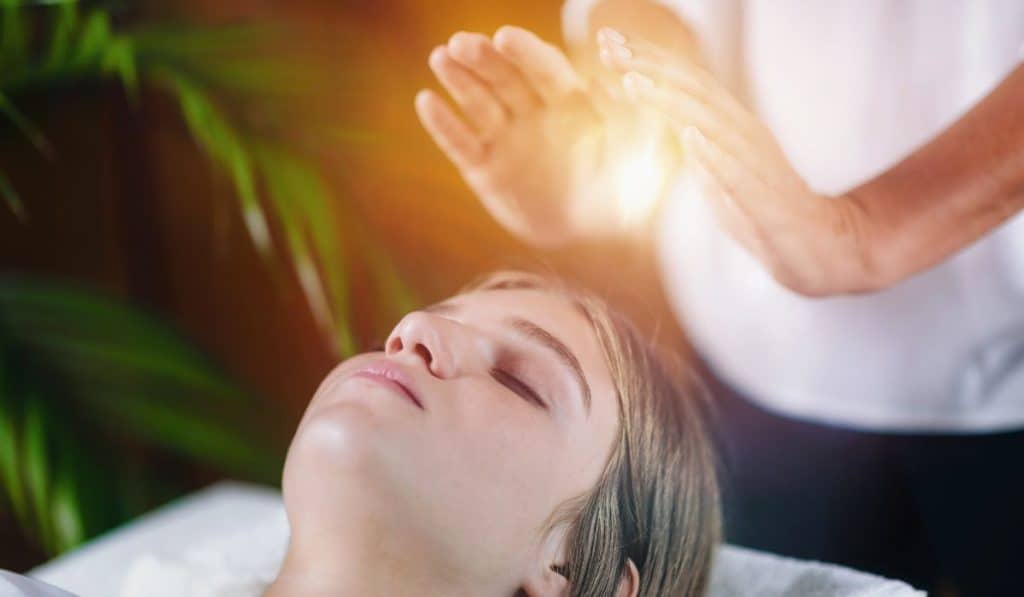
How to Perform Reiki
Reiki is most effective when performed in a peaceful setting. The patient or person receiving the Reiki will either sit on a comfortable chair, lie down either on a table or on the floor.
It is best to wear clean, loose-fitting, and comfortable clothes with no shoes or jewelry. You may wish to wear natural fabrics such as linen or cotton.
It is also advised to clean the space you are performing reiki in and clear any clutter, to dim the lights to create an ambiance, and turn off any electronic devices that could distract you and put them aside. You may also wish to put some soft, relaxing music on in the background.
When you are about to begin, it is worth asking the person receiving the Reiki if there are any areas of the body you want to focus on in particular such as any injuries or points of tightness. If the injury is tender or sore, you may choose to hold your hands just above the wound.
During a Reiki session, the person performing will place their hands lightly over specific areas of the patient’s body for 1 to 5 minutes. Each hand position is held until you can feel that the energy flow has stopped.
After your Reiki, make sure to drink lots of water. Whether you feel energized or tired after your reiki, it is most effective when you do not do any physical exercise or mentally challenging tasks for the rest of the day.
The practice intends to stimulate the natural healing ability of your body. You may experience visualizations including colors or shapes, as well as sensations of heat or tingling in certain areas.
It is also known to produce feelings of nostalgia and bring up memories. It is important that you allow whatever thoughts or feelings arise to pass as if you are observing them rather than engaging with them and attaching meaning to things.
If you have experienced past trauma, be cautious that lying quietly in a room with someone close by may be uncomfortable.
In order for the healing energies of Reiki to have a lasting effect, you must accept personal responsibility for your own healing. It requires an active commitment from the user to improve your wellbeing in order for it to work in its entirety.
Final Thoughts
Whether you seek to learn Reiki for your own self-care or for the purpose of healing others, Reiki is not a mentally challenging exercise. Rather, it is a spiritual practice that is developed through understanding and practice.
Overall, the inherent values of Reiki are worthy of practice for anyone who is serious about improving their own lives and understanding their own energies.
Reiki practice can be extremely rewarding in a variety of ways and is hugely beneficial when used to complement medical treatments.
It is a natural and safe way to heal the body and the practice has the potential to initiate many positive benefits for your wellbeing.

